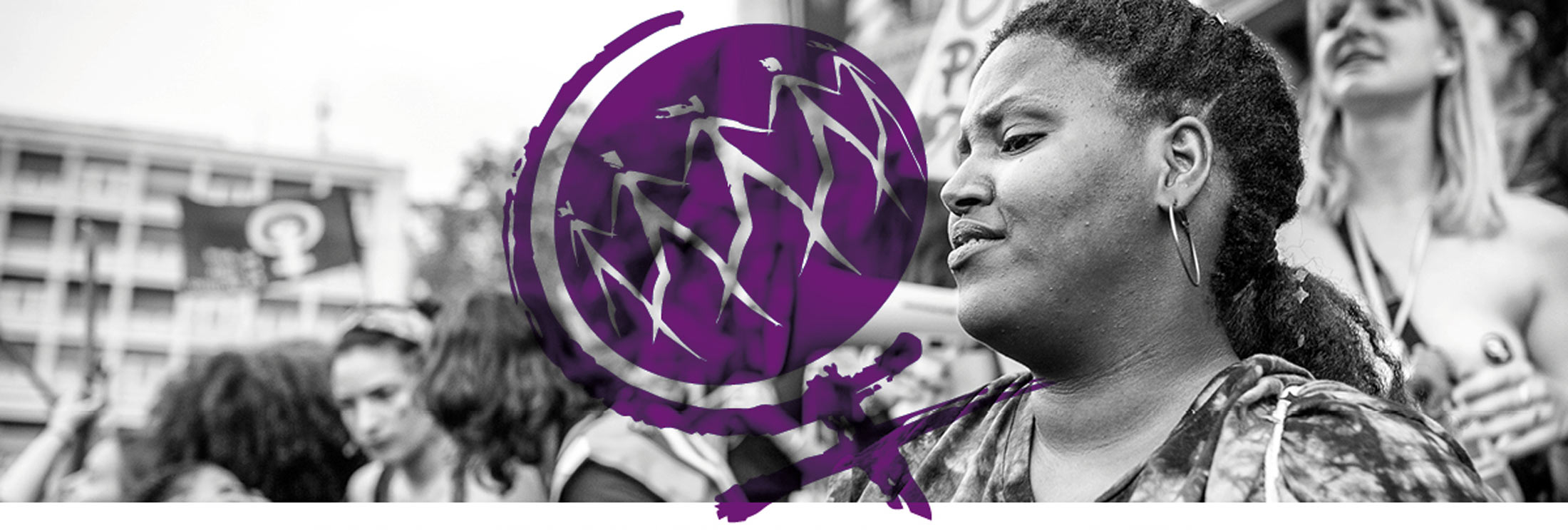After five months and 20 days in jail, the criminal court in Turkey decided to release the 22 activists (10 women and 12 men) arrested in the months of May and June. The next stage of the trial investigating the alleged involvement of the accused with an illegal organisation will be held on the 2nd March 2010. Testimonies from all prisoners were heard in this first trial, which lasted two days, until early morning on Saturday, the 21st. For lack of time, the nine others who were awaiting trial in liberty were not heard.
The trial was accompanied by about 150 people, including an international delegation of more than 40 people and the families of the prisoners - teenagers, elderly parents – as well as friends and political activists. KESK (Confederation of Public Employees Trade Unions of Turkey) activists remained outside the court throughout the trial, carrying posters demanding “Hands off KESK”, accompanied by groups of school students and human rights organisations.
All the women imprisoned identified themselves before the jury as feminists. All of them were or are responsible for the women's committees of public sector trade unions related to KESK at different levels (local, regional, national). One of the ten accused women began her statement in the trial denouncing the prosecutor’s report as patriarchal defamation.
The alleged evidence of crime reported during the trial is nothing more than activities that are part of the daily life of trade union and women’s organisations. The alleged crime is that those who were detained were using the structure of KESK to build an organisation of workers linked to the PKK – the Kurdistan Workers’ Party – considered illegal in Turkey. Based on this argument, activities like phone calls to invite people to attend meetings or training workshops were considered as recruitment of people to an illegal organisation. Telephone conversations among women to advise or discuss their work at trade unions were considered as orders given or carried out in an illegal military organisation. This includes the organisation of events like the 8th March with other women's groups and women in political parties.
Affirmative action policies were also described as a crime. KESK and their unions have very active women’s sections. These departments have always been active and played a key role in the activities of WMW in Turkey. But as they are not included in the organisation’s statutes and they do not exist in other trade unions confederations, the prosecution also described their activities as illegal. In this way, the policy that assures a 30% quota for women was described as a form of occupation of KESK by an illegal organisation.
As well as a clear attempt to criminalise trade union and women’s activities, discrimination against the Kurdish people is also a strong factor present in this trial: almost all the accused are of Kurdish origin. Prosecution stated that one of the women who is not Kurdish, but is the partner of a Kurd man, was following orders given to her from husband. Other examples of “crime evidence” presented by the prosecution were the fact that a woman accused went to the cinema to watch the movie Bahoz (Storm) with Kurdish subtitles or the organisation of a press conference about the right to education in mother tongue. Evidence presented in the trial also included misinterpreted telephone records obtained without authorisation and emails. Lawyers and attorneys refuted the so-called "evidence", built to criminalize the trade union and feminist activism.
The decision that all prisoners respond await further trial in liberty was considered a great victory and the result of intense mobilisation in national and international levels (expressed through the various events and actions against the Turkish government and its diplomatic representations). In a letter sent after the trial was finished, KESK affirmed that the arrest of the activists shows once again the "serious risk and cost of conducting the work and struggle for democracy in Turkey". It thanked all solidarity received and committed to continue to share information about developments related to the trial.




